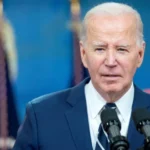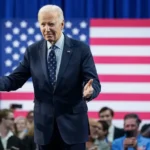
Published March 1, 2023
Years from now, we may look back on the passage of Florida House Bill 999 as the moment when the campus monoculture finally broke. Although sponsored by Representative Alex Andrade, H.B. 999 is clearly a vehicle for the ambitious program of higher-education reform announced by Governor Ron DeSantis last month.
Filed only days ago, H.B. 999 swiftly elicited howls of protest, not simply from the usual academic suspects but from staunch defenders of free speech such as the Foundation for Individual Rights and Expression (FIRE). Keith Whittington, a liberal academic who has nonetheless called on schools to counter the dearth of conservative scholars on campus, has also pushed back hard against the bill at the Volokh Conspiracy and the Chronicle of Higher Education (CHE).
Both FIRE and Whittington rightly treat H.B. 999 as an unusually ambitious legislative intervention in campus affairs. Yet in FIRE’s words, H.B. 999 is “laden with unconstitutional provisions hostile to freedom of expression and academic freedom.” Whittington’s CHE piece is titled, “DeSantis’s Terrifying Plot Against Higher Ed: Even Conservatives Should Oppose the Florida Governor.”
Well, this conservative agrees that H.B. 999 could use some cuts and tweaks. As I said last June when discussing an early version of H.B. 999, provisions that bar CRT from the college classroom (as opposed to the K–12 classroom) are substantively, legally, and politically unwise, as well as unnecessary to achieving the larger ends of this bill. That aside, I don’t see the truly novel and ambitious features of H.B. 999 — greater control of faculty hiring by presidents and boards of trustees, more robust guidance from the legislature on general-education courses, and a weakening of the tenure system — as troubling. On the contrary, these are much-needed steps toward fixing our broken universities.
The most controversial provision in H.B. 999 vests the power to hire faculty in both state university boards of trustees and university presidents. (I’ll discuss this issue today, leaving the remaining controversies to a follow-up post.)
As a rule, faculty committees control new appointments. This ability of professors to choose their own colleagues is often cited as a bulwark of academic freedom. That accounts for the gnashing of teeth and rending of garments at the idea of trustees and presidents controlling faculty hiring and tenure. After all, boards of trustees aren’t academics. They’re political appointees — and university presidents serve at the pleasure of boards. Thus, supposedly, H.B. 999 unduly “politicizes” public universities.
As I explained when commenting on an earlier draft of this legislation, however, university presidents and boards of trustees already have final authority over faculty appointments. Sadly, in practice presidents and trustees typically rubber-stamp the hiring and tenure recommendations of faculty committees. That means this provision actually does little, if anything, to change the formal structure of power at public universities. It’s more of an attempt to prod university presidents and boards of trustees into greater assertion of their existing powers by explicitly highlighting their responsibility for faculty hiring.
By itself, this provision would likely yield only modest changes, if any, in faculty-appointment outcomes. Yet, to the bill’s attempt to resurrect the real but moribund appointment powers of boards and presidents, add the recent selection of former U.S. senator Ben Sasse as president of the University of Florida, and of former Florida Education commissioner and former speaker of the Florida house Richard Corcoran as president of the New College of Florida, along with boards of trustees at those schools no longer content to rubber-stamp business-as-usual faculty appointments. Put H.B. 999’s attempt to resurrect the powers of presidents and boards together with the new reality of Florida’s trustee and presidential appointments, and the prospects for change turn very real indeed.
FIRE objects that the direct exercise of power over faculty hiring and firing by university presidents jeopardizes academic freedom. Says FIRE: “The more power that one individual has to call the shots on campus, the easier it is for political forces — be they donors, politicians, students, or activists — to dictate the range of acceptable ideas and voices.” Notice that FIRE isn’t claiming here that the exercise of greater presidential power over faculty appointments would be illegal or unconstitutional. It is neither.
True, other things being equal, greater presidential power is more subject to political pressure than power dispersed among a large faculty. Yet “other things” are decidedly not equal. For decades, faculties have abused the tenure system, and their de facto exclusive authority over hiring and promotion, to consolidate a thoroughly political monopoly.
Back in the early 1990s, C. Vann Woodward, the liberal civil-rights and free-speech hero, joined the National Association of Scholars (NAS), a group then stigmatized as reactionary by the campus Left for upholding traditional principles of free speech and academic freedom. In a brief 1993 address to NAS, Woodward criticized academic leftists whom he said were “denying academic freedom by acting to control and police academic appointments, admissions, curriculum, teaching, and thought in order to promote their political programs.” Three decades later, the abuse of tenure to secure a controlling majority on the faculty for the hard Left has achieved its final end. Power dispersed among the faculty is now power “dispersed” among a tightly knit intellectual-political monopoly.
Here is Whittington’s account of the rationale behind faculty control over personnel decisions: “The independence of the faculty is meant to insure that professional merit and not political favoritism drives such decisions and that scholarly activity will be insulated from political pressures.” To read this is to laugh. The idea that faculty are chosen strictly according to some neutral measure of professional merit, rather than conformity to the new political orthodoxy, is a joke. FIRE’s argument depends on the supposition that the current system of faculty appointments is working the way it is ideally supposed to. That hasn’t been true since Woodward’s day, and it’s far less true now than ever before.
Academic freedom was meant to create a robust marketplace of ideas on campus. Unfortunately, with illiberal academics running the system, the result is the opposite — ideological conformity for most, intimidation and silence for the rest. The system has failed, and if it’s to be fixed, something big has got to change.
Fortunately, we have an example that shows Florida’s planned solution just might work. Under the leadership of president, and later chancellor, John Silber, the trustees and president of Boston University fully made use of their formal authority over faculty hiring and tenure. As Roger Kimball put it, Silber used his hiring authority to “turn a second-rate commuter school into a world-class research institution.” Silber did it by hiring scholars of first rank and by rejecting the recommendations of faculty hiring and tenure committees when he was dissatisfied with the quality of an applicant’s work.
If Silber felt that a faculty member had turned from scholarship to political activism, that application for promotion or tenure was rejected — notwithstanding the inevitable chorus of complaints. If a faculty committee recommended a hire by a lopsided margin, yet the dissenters were the members of that department that Silber considered first-rate, the president would go with the minority — particularly when their recommendation accorded with the results of his own extensive vetting. In fields he knew, Silber often personally read and evaluated a candidate’s scholarly output.
Silber also retained a staff for such vetting. Peter Wood, now president of NAS, used to be on that staff. (He recounts the experience here.) Silber’s repeated rejections of faculty hiring and tenure recommendations often generated anger, along with accusations of tyranny and complaints about the supposed affront to academic freedom. Silber countered that he was using his legitimate authority as president, and he thoughtfully and energetically defended his hiring and firing decisions, on substance, when challenged.
The result was not only an elevation in BU’s stature, but the creation of a rare exception to academia’s cookie-cutter leftist institutions. It’s not that leftists were absent at BU under Silber. Far from it. The many faculty members who loathed him were mostly on the left, led by the famous Howard Zinn. But at least BU in the Silber era had plenty of representatives of other approaches and points of view. This was a marketplace of ideas, and it’s revealing that the market shut down when the Silber era ended. After Silber, as Kimball and Wood affirm, BU became just another cookie-cutter, politically correct university.
In current conditions, then — distant as they are from ideal — the best way to break the campus monopoly and restore a marketplace of ideas may be to hand power back to boards of trustees and presidents not enslaved to current campus orthodoxies. That’s exactly what DeSantis is doing.
As noted, this is only one of several controversies kicked up by H.B. 999. I’ll be discussing criticisms of other provisions in one or more follow-up posts.
Stanley Kurtz is a Senior Fellow at the Ethics and Public Policy Center. On a wide range of issues, from K-12 and higher education reform, to the challenges of democratization abroad, to urban-suburban policies, to the shaping of the American left’s agenda, Mr. Kurtz is a key contributor to American public debates. Mr. Kurtz has written on these and other issues for various journals, particularly National Review Online (where he is a contributing editor).
Stanley Kurtz is a Senior Fellow at the Ethics and Public Policy Center. Beyond his work with Education and American Ideals, Mr. Kurtz is a key contributor to American public debates on a wide range of issues from K–12 and higher education reform, to the challenges of democratization abroad, to urban-suburban policies, to the shaping of the American left’s agenda. Mr. Kurtz has written on these and other issues for various journals, particularly National Review Online (where he is a contributing editor).












